Stopping the Spread
Students, Staff Discuss Mandate Measures Limiting Spread of COVID-19
Sitting in the cafeteria, masked juniors eat lunch together. Schoolwide, students like junior Yash Shah are in full support of the mask mandate as a necessary measure against the COVID-19 pandemic. “Masks are CDC-approved equipment that amount to a simple piece of cloth on your face, so I think people should at least wear them,” Shah said.
September 10, 2021
Amid the school’s rise in positive COVID-19 cases among teachers and students, a mask mandate was implemented to reduce the spread. It is part of wider opposition in Texas against Governor Greg Abbott’s statewide order to ban mask and vaccine mandates for local governments.
The decision by the school board to implement a mask mandate was not passed unanimously. Two members of the LISD Board of Trustees, Board Member Aaron Johnson and Board Secretary Elexis Grimes, dissented, with the former citing the violation of Abbot’s order. Students are also able to opt out of the mandate if they choose to do so. At the schoolwide level, however, a mask mandate is seen as a necessary countermeasure to the spreading of the Delta variant, a new strain of COVID-19 that now makes up 93% of COVID-19 infections worldwide.
“Once the cases of the Delta variant surged and the CDC recommended masks for all, it was not a surprise that LISD issued the mask requirement,” Principal John Sloan said. “This decision will not satisfy everyone, but it does emphasize the district’s position while still providing choice.”
The largest demographic that this mandate aims to protect are students, the 2,000+ student body who all come from various diverse locations to one campus, increasing the risk of spreading the disease to other students and their families. Students like junior Yash Shah are largely in support of the mask mandate, citing it as a simple fix to the pandemic.
“COVID-19 cases in Austin are rising rapidly, so I am in support of the mandate,” Shah said. “Masks are CDC-approved equipment that amount to a simple piece of cloth on your face, so I think people should at least wear them.”
Personal experiences are another factor that affect student opinion on public health measures against COVID-19. Junior Eshan Bharadwaj, who has relatives in India, a country that dealt with a devastating wave in May, speaks about the mask mandate with his family in mind.
“I was definitely more cautious about the pandemic after hearing what happened in India,” Bharadwaj said. “With the Delta variant becoming more prominent, people should be taking those extra precautions, so I think that a mask mandate is 100% necessary.”
However, questions on a potential vaccine mandate still remain contentious. Officially, the district strongly encourages that students take the vaccine, saying that vaccines could help schools return to in-person learning safely. However, no law requiring students and parents to show their immunization record for the COVID-19 vaccine before entering the school exists. According to Shah, while a mask mandate is fine, a vaccine mandate would pose too many risks alongside it.
“Even if the Pfizer vaccine has been approved by the FDA, it’s a relatively new vaccine and so there’s still room for confirmation,” Shah said. “Some parents are still concerned about the long-term effects of the vaccine. I just want vaccines to remain highly recommended by the school.”
For those with younger and/or immunocompromised family members who cannot take a vaccine or are still at risk, a vaccine mandate would potentially help in protecting those individuals from the most severe symptoms of COVID-19, should they contract it. Math teacher Jennifer Macklom, whose children are participating in a medical trial to manufacture a vaccine safe for kids ages 5 – 11, said that the benefits of a Pfizer vaccine mandate outweigh the costs.
“We already require vaccines to go to school,” Macklom said. “I remember missing one unrelated vaccine for my child in kindergarten and the school didn’t allow her in. Mandating the FDA-approved Pfizer vaccine is a fully justifiable next step to ensure that other people don’t spread the virus to my children or those who can’t afford the medical treatment. It’s a pandemic, it’s not just you that’s getting sick.”
Still, prospects of a vaccine mandate remain highly unlikely in Texas, a state where a third wave of the pandemic continues to infect thousands of people per day as of September. Macklom still considers both mask and vaccine mandates as necessary steps towards lessening the impact of the pandemic.
“I think when people cite their right to make their own health decisions, they’re talking about health decisions that aren’t contagious,” Macklom said. “Every person that becomes infected essentially becomes a lab to create a mutated variant that could bypass the immune systems of thousands more if it were to spread. Even if I have a great immune system and can afford contracting the virus, I know that not everyone around me can afford those same privileges.”



![Jumping off the ground, senior linebacker Bennett Patton snatches the ball out of the air for an interception at Thursday’s game against Chaparral. Patton had two interceptions in the 56-14 victory, tying the school record for interceptions in a game. “I was just playing the game,” Patton said. “[I’m] going to go into next week, forget about it and stay humble.” Photo by Harper Chapman](https://cphswolfpack.com/wp-content/uploads/2025/09/bennett-interception.jpg)
![The fire department came to the school after students were evacuated when smoke started coming from the ceiling of a classroom. All students and staff are safe. “All of my friends left their stuff too, so we couldn’t contact our parents, and it was stressful,” senior Brynn Fowler said. “It was scary because I didn’t know [what was going on], and I couldn’t find anyone because it was a big crowd.” Photo by Anthony Garcia](https://cphswolfpack.com/wp-content/uploads/2025/09/firetruck.jpg)


![Sitting with her friend senior Sohpia Struve at last year’s Austin City Limits Festival, senior Ava Zuniga poses for a picture under a pavilion. They are frequent attendees at ACL, an annual music festival at Zilker Park. “I would recommend seeing a bunch of people,” Zuniga said. “This past year, we camped out for Chappell [Roan] for a really long time. I think the whole point of ACL, [which] is a lot of fun, is that you can go see so many different people, even if you don’t know them. So by camping by one person, it really limits yourself from being able to go see a bunch of people.” Photo courtesy of Ava Zuniga](https://cphswolfpack.com/wp-content/uploads/2025/10/EE9E9484-FE6F-4AA0-B5F5-0C177AB32841-1200x857.jpeg)
![Broadcast, yearbook and newspaper combined for 66 Interscholastic League Press Conference awards this year. Yearbook won 43, newspaper won 14 and broadcast took home nine. “I think [the ILPC awards] are a great way to give the kids some acknowledgement for all of their hard work,” newspaper and yearbook adviser Paige Hert said. “They typically spend the year covering everyone else’s big moments, so it’s really cool for them to be celebrated so many times and in so many different ways.”](https://cphswolfpack.com/wp-content/uploads/2025/05/edited-ILPC.jpg)





![Looking down at his racket, junior Hasun Nguyen hits the green tennis ball. Hasun has played tennis since he was 9 years old, and he is on the varsity team. "I feel like it’s not really appreciated in America as much, but [tennis] is a really competitive and mentally challenging sport,” Nguyen said. “I’m really level-headed and can keep my cool during a match, and that helps me play a bit better under pressure.” Photo by Kyra Cox](https://cphswolfpack.com/wp-content/uploads/2025/09/hasun.jpg)

![Bringing her arm over her head and taking a quick breath, junior Lauren Lucas swims the final laps of the 500 freestyle at the regionals swimming competition on date. Lucas broke the school’s 18-year-old record for the 500 freestyle at regionals and again at state with a time of 4:58.63. “I’d had my eye on that 500 record since my freshman year, so I was really excited to see if I could get it at regionals or districts,” Lucas said. “ State is always a really fun experience and medaling for the first time was really great. It was a very very tight race, [so] I was a bit surprised [that I medaled]. [There were] a lot of fast girls at the meet in general, [and] it was like a dogfight back and forth, back and forth.” Photo by Kaydence Wilkinson](https://cphswolfpack.com/wp-content/uploads/2025/03/Kaydence-2.7-23-edit-2.jpg)
![As the support team sits and poses for a photo in the cafeteria with the counseling team they eagerly wait to start their day. "We [all] seem to be a team, I get up every day and there's days where I don't want to go to work today, but I'm thankful that I have a job and I'm blessed to have what I have," Christopherson said. Photo Courtesy of Julie Weltens.](https://cphswolfpack.com/wp-content/uploads/2025/01/AF9E8470-10D7-4C91-BF28-EC8F86BAB66C-1200x852.jpeg)
![As he sprints with the ball, senior running back Trae Hill breaks a tackle during Friday’s 35-14 loss against the Vandegrift Vipers. Hill ran for 135 yards and two touchdowns during the game. “[Scoring] was electric,” Hill said. “It always feels good to score, but the O-line did everything.”](https://cphswolfpack.com/wp-content/uploads/2025/09/IMG_0795allie.varfb_-1200x799.jpg)














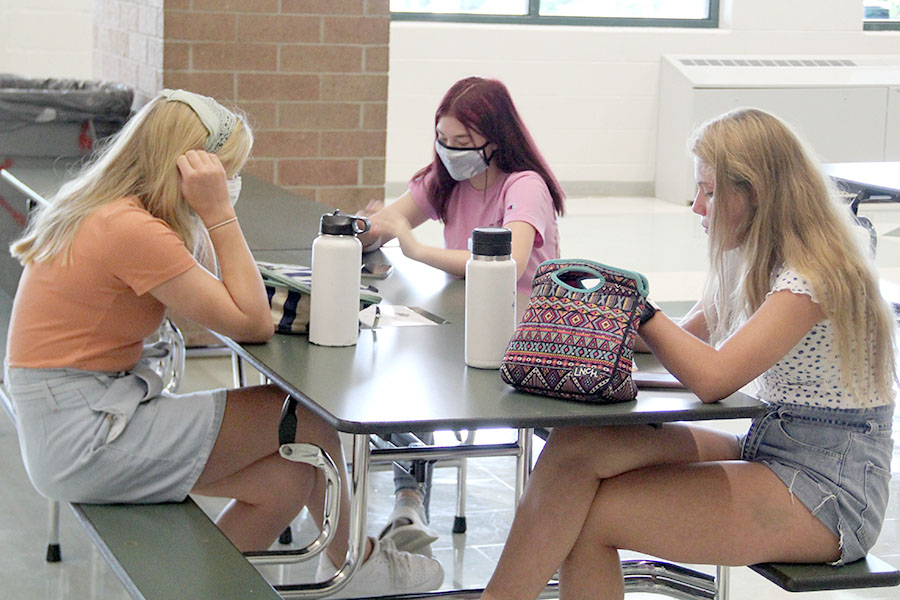
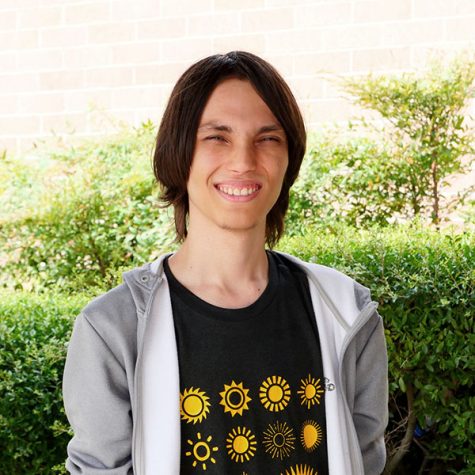


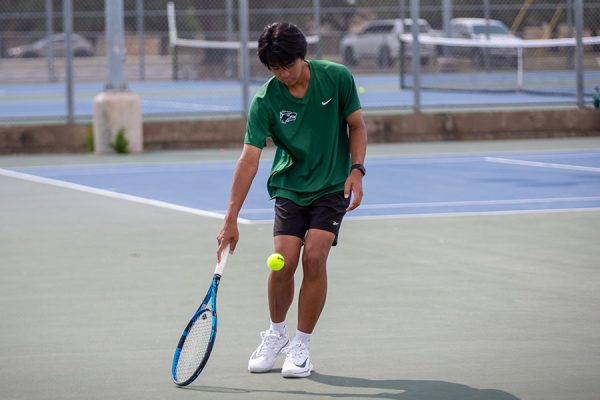
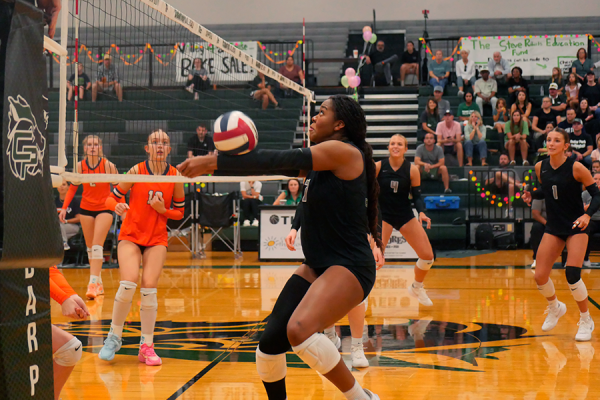
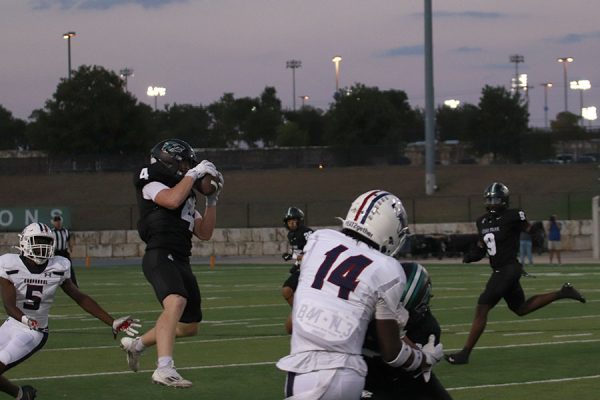
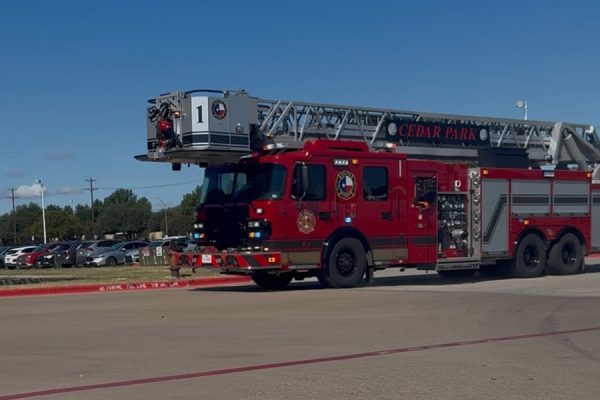
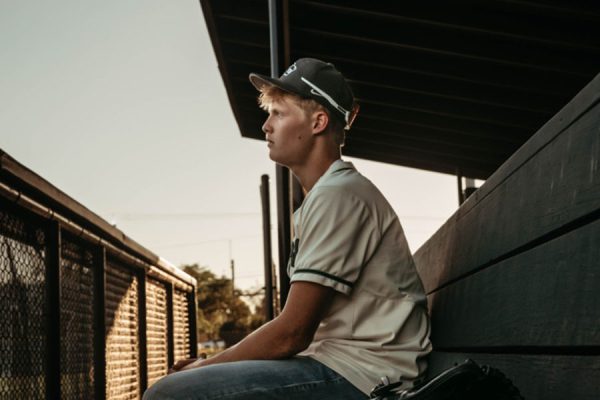

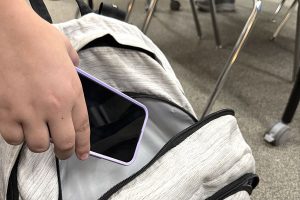
![The fire department came to the school after students were evacuated when smoke started coming from the ceiling of a classroom. All students and staff are safe. “All of my friends left their stuff too, so we couldn’t contact our parents, and it was stressful,” senior Brynn Fowler said. “It was scary because I didn’t know [what was going on], and I couldn’t find anyone because it was a big crowd.” Photo by Anthony Garcia](https://cphswolfpack.com/wp-content/uploads/2025/09/firetruck-300x200.jpg)

![Finishing her night out after attending a local concert, senior Grace Sauers smiles at the camera. She recently started a business, PrettySick, that takes photos as well as sells merch at local concert venues. Next year, she will attend Columbia Chicago College majoring in Graphic Design. “There's such a good communal scene because there [are] great venues in Austin,” Sauers said. “I'm gonna miss it in Austin, but I do know Chicago is good, it's not like I'm going to the middle of nowhere. I just have to find my footing again.” Photo Courtesy of Grace Sauers.](https://cphswolfpack.com/wp-content/uploads/2025/04/Grace-300x225.png)


